The Contemporary Influence of Fortune Tellers in Astrology
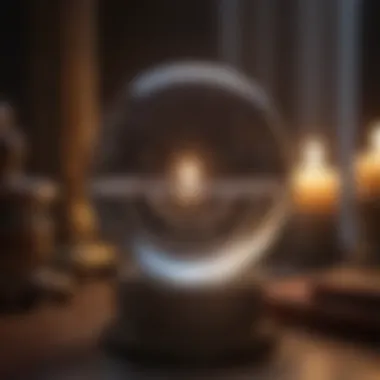

Intro
Fortune tellers occupy a unique space within the landscape of modern astrology. Their allure often lies in their promise to unveil the unknown and provide personal insights that might not be readily visible. As the world continues to evolve, so do the methods and perceptions surrounding this ancient practice. This section will dissect the contemporary role of fortune tellers, examining how their techniques and societal views intersect with the astrological traditions that have persisted for centuries.
In recent years, the rise of technology has altered the way individuals interact with fortune tellers. Online platforms and applications have emerged, expanding accessibility and challenging traditional practices. This article will also explore how the integration of technology has affected the authenticity of fortune telling and what it means for personal decision-making in today’s fast-paced environment.
Through a detailed analysis, readers will gain a better understanding of how fortune tellers contribute to personal growth and a clearer view of astrological principles as they adapt to the modern world. This exploration of fortune telling will peel back the layers, revealing its significance within the larger framework of astrology, and how it influences our daily lives, choices, and perceptions of self.
Zodiac Sign Overview
Astrology, at its core, is deeply connected to the twelve zodiac signs, each representing distinct characteristics and influences. Understanding these signs is fundamental to grasping not only astrology itself but also the role of fortune tellers who often use zodiac insights as a guiding tool for their predictions.
General Traits
Each zodiac sign carries unique traits that define personality and behavior patterns. The signs range from the fiery Aries to the serene Pisces. Recognizing these traits allows individuals to better understand themselves and others. For instance:
- Aries: Bold, ambitious, and spontaneous
- Taurus: Reliable, patient, and practical
- Gemini: Adaptable, curious, and communicative
- Cancer: Emotional, nurturing, and protective
- Leo: Confident, charismatic, and creative
- Virgo: Analytical, detail-oriented, and hardworking
- Libra: Diplomatic, fair-minded, and sociable
- Scorpio: Intense, passionate, and mysterious
- Sagittarius: Adventurous, optimistic, and philosophical
- Capricorn: Disciplined, responsible, and ambitious
- Aquarius: Innovative, independent, and humanitarian
- Pisces: Compassionate, artistic, and idealistic
Element and Modality
Zodiac signs are categorized into four elements: fire, earth, air, and water. Each element represents a different approach to life.
- Fire Signs: Aries, Leo, Sagittarius – Energetic and passionate
- Earth Signs: Taurus, Virgo, Capricorn – Grounded and practical
- Air Signs: Gemini, Libra, Aquarius – Intellectual and communicative
- Water Signs: Cancer, Scorpio, Pisces – Intuitive and emotional
Furthermore, these signs are assigned modalities: cardinal, fixed, or mutable, indicating how they respond to change. For instance, cardinal signs initiate new projects while fixed signs seek stability, and mutable signs are adaptable.
Strengths and Weaknesses
Understanding the strengths and weaknesses of each zodiac sign can provide valuable insights. Fortune tellers often leverage this information during readings, focusing on how these traits can influence decision-making and personal growth. For example, an Aries may excel in leadership but struggle with patience, while a Virgo may be meticulous but sometimes overly critical.
In summary, a comprehensive understanding of the zodiac signs forms the foundation upon which much of fortune telling is built. It highlights the intricate relationship between individual traits and broader astrological principles. As this exploration continues, it will reveal how fortune tellers harness this knowledge to guide their clients and offer insights that resonate personally.
Preamble to Fortune Telling
Fortune telling occupies a unique space within both personal belief systems and the broader framework of astrology. It serves as a guide for people seeking insights into their lives or understanding their future paths. Engaging with fortune tellers can facilitate self-reflection, provide comfort, and spark curiosity about what lies ahead. This section will lay the groundwork for understanding fortune telling in the context of modern astrology, highlighting its significance in contemporary culture.
Defining Fortune Telling
Fortune telling can be defined as the practice of predicting information about a person's life, often involving elements of the mystical or spiritual. It encompasses various methodologies, such as tarot reading, palmistry, and astrological readings. The common goal is to offer clarity and insights about the future, relationships, or personal dilemmas. By establishing a connection between the individual and the universe, fortune tellers aim to provide a sense of direction and understanding.
Historical Overview
Historically, fortune telling has deep roots woven into the human experience. The practice dates back thousands of years, with evidence found in ancient civilizations such as Egypt, Greece, and Rome. Originally, it was often intertwined with religious ceremonies and spiritual beliefs. Oracles and seers played crucial roles in societies, using their gifts to guide rulers and communities.
The evolution of fortune telling has seen it transition from sacred practices to more secular forms we see today. During the Renaissance, interest in astrology and the esoteric flourished, leading to a broader acceptance of these practices in Western society.
In the modern era, fortune telling has adapted to contemporary contexts, allowing it to thrive alongside technological advancements. Its popularity continues as individuals seek guidance in increasingly complex realities. Understanding this historical context is essential, as it reveals the ongoing relevance of fortune tellers in our lives today.
The Intersection of Astrology and Fortune Telling
The entwinement of astrology and fortune telling holds significant weight in both practices. Understanding their relationship is essential for grasping how fortune tellers operate within contemporary astrological frameworks. Both disciplines offer insights into human behavior and life events, while serving distinct purposes for individuals seeking guidance. Fortune tellers connect astrological insights with predictive techniques, allowing for a more comprehensive approach to personal exploration and clarity.
Astrology Basics
Astrology is the study of celestial bodies and their positions in relation to human affairs. This field often involves the analysis of natal charts, which map the positions of planets at the time of a person’s birth. Each element of the chart, such as the sun sign, moon sign, and rising sign, contributes unique traits to an individual's personality and experiences. Understanding astrology basics lays the groundwork for recognizing how these celestial influences can guide decisions and predict future events.
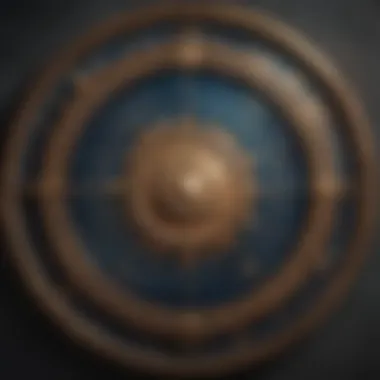
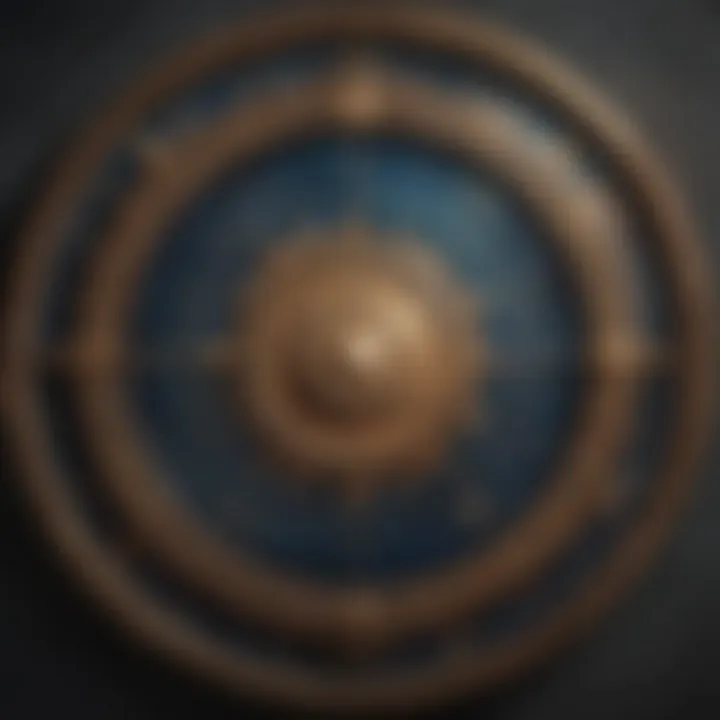
Some essential components of astrology include:
- Zodiac Signs: The twelve zodiac signs represent different personality traits and life paths.
- Houses: Divided into twelve sections, houses denote areas of life affected by astrological influence.
- Aspects: The angles between planets illustrate relationships that can affect an individual's emotional and physical experiences.
Astrology serves as a map for those seeking insight into themselves and their environments. It's a tool for understanding the undercurrents of life, helping individuals navigate through complexities.
How Fortune Tellers Use Astrology
Fortune tellers incorporate astrology into their practice to provide personalized readings. They analyze specific celestial events and translate them into relevant insights for their clients. By melding traditional astrological principles with intuitive practices, fortune tellers can address personal challenges and clarify future paths.
Some common methods include:
- Natal Chart Analysis: By creating and interpreting a client’s natal chart, fortune tellers can identify periods of opportunity and challenge.
- Transits: They observe current planetary movements to determine how these might influence a client’s life in the near future.
- Horoscopes: Tailored daily, weekly, or monthly horoscopes are often used to help clients understand what energies are at play during certain periods.
A skilled fortune teller not only applies astrological knowledge but also tunes into the client’s energy. This blend of technical understanding and intuitive perception is what sets effective fortune tellers apart from mere technicians of celestial rules.
The integration of astrology into fortune telling establishes a robust framework for personal insights, enabling a deeper comprehension of oneself and decisions ahead.
Modern Practices in Fortune Telling
The realm of fortune telling is evolving, shaped by modern culture and technology. This section examines the current practices in fortune telling, focusing on the various techniques and the role of technology in enhancing these age-old practices. Understanding modern practices helps in grasping how fortune tellers connect with individuals today and provide meaningful insights, guidance, and experiences.
Techniques Employed
Tarot Reading
Tarot reading is a popular technique in fortune telling. Using a deck of 78 cards, it offers insights into a person's past, present, and potential future. Each card has its unique meaning and symbolism that contributes to the reading. This method is valued for its depth, as it encourages introspection and personal understanding.
One of the key characteristics of tarot reading is its ability to reveal subconscious thoughts and feelings. By reflecting on the cards drawn, individuals can gain clarity regarding their life choices. The unique feature of tarot is that it adapts to a person’s emotional state, making each reading distinct.
Advantages of tarot reading include its intuitive approach and the detailed narratives it can create. However, some may find it challenging to interpret the symbols accurately or may feel overwhelmed by the complexity of the cards. Nevertheless, tarot remains a beneficial choice for those seeking insights into their lives.
Palmistry
Palmistry involves analyzing the lines, shapes, and features of a person's hands to predict their future and understand their personality. The practice provides an intimate connection, as it focuses on an individual's unique traits and experiences. The key characteristic here is its personal nature, allowing for a direct, hands-on assessment.
This method stands out because it considers various aspects such as health, relationships, and career paths. Palmistry is beneficial for its immediacy; individuals can receive readings in moments with no tools needed other than hands.
The advantages include its straightforward approach, which can make it more accessible to many. However, critics argue that palmistry lacks scientific basis, leading to skepticism about its accuracy. Still, it remains popular for those interested in self-discovery.
Crystal Ball Gazing
Crystal ball gazing, or scrying, invites practitioners to divinate answers using a crystal ball. This technique allows for visualization, providing a space for contemplation and insight. One of its key characteristics is the aura of mystery surrounding the practice, which draws individuals into its allure.
The unique feature of crystal ball gazing is that it encourages an interactive experience. As the practitioner focuses on the crystal, the interpretations can vary widely, offering diverse insights. This can lead to unexpected revelations, making it appealing to many seekers.
Advantages include the rich sensory experience it provides, as observers may see different images and symbols emerge. On the downside, the practice may be viewed as superficial, with detractors noting the lack of concrete methodology. Nonetheless, crystal ball gazing remains a captivating technique for anyone exploring fortune telling.
Role of Technology
Technology has profoundly impacted the field of fortune telling. As methods evolve, so does the manner in which practitioners connect with clients. This section explores how technology shapes the landscape of fortune telling today.
Online Readings
Online readings present a convenient way for individuals to access fortune tellers. Whether through dedicated websites or platforms, this method makes it easier to connect with practitioners from anywhere in the world. The key characteristic is flexibility, allowing clients to choose the style and timing of their readings.
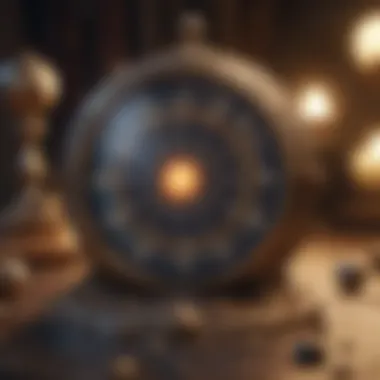
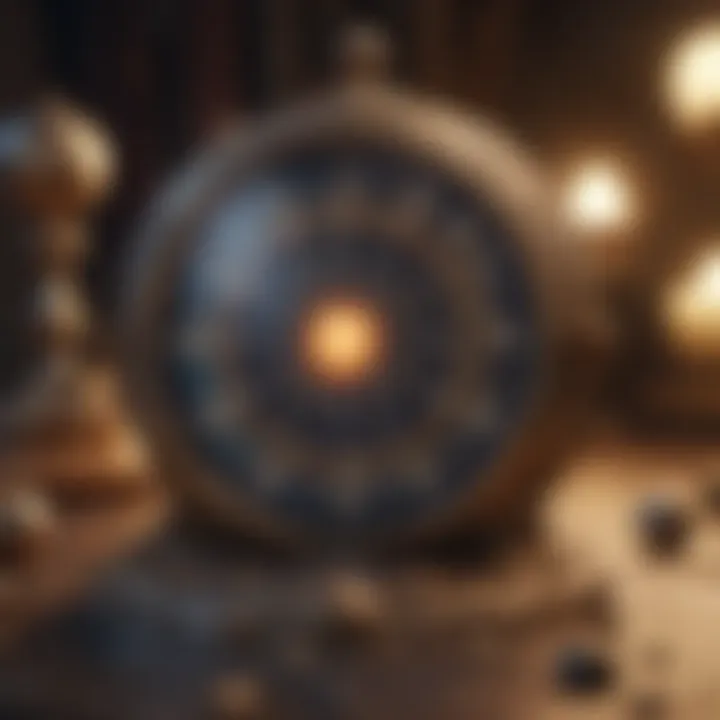
A significant advantage of online readings is anonymity; clients can interact with fortune tellers without judgment. However, a potential downside is the lack of personal connection that often accompanies face-to-face consultations.
Mobile Apps
Mobile apps have emerged as another modern interface for fortune telling. With various options available, these apps offer everything from daily tarot pulls to astrology charts. Their key characteristic is accessibility, as users can engage with fortune telling at their fingertips.
The most appealing feature of mobile apps is their interactive and fun approach, making the experience more engaging for younger audiences. Nonetheless, users may encounter limitations in depth or quality when relying solely on apps.
Social Media Influence
Social media plays a crucial role in promoting fortune telling practices. Fortune tellers use platforms like Instagram and TikTok to reach broader audiences, sharing insights and attracting clients. The key characteristic is immediacy, where individuals can quickly access guidance and content.
This influence allows practitioners to showcase their expertise while interacting with followers. However, this democratization could lead to misinformation, with some self-claimed gurus lacking proper knowledge or skill. Thus, while social media can enhance visibility for genuine fortune tellers, it also poses challenges in maintaining quality control.
In summary, modern practices in fortune telling are deeply intertwined with cultural shifts and technological advancements, helping practitioners to connect with clients in innovative ways.
Societal Views on Fortune Telling
The societal views surrounding fortune telling are complex and varied. They reflect a wide range of cultural beliefs, historical contexts, and personal experiences. In the modern world, fortune tellers occupy a unique position that blends skepticism and belief. Understanding how society perceives these practitioners is crucial, as it influences both their acceptance and their methods. As horoscope readings become more popular, the intersection between fortune telling and personal development comes to the forefront. This intersection sheds light on the benefits and challenges fortune tellers face in a rapidly changing landscape.
Cultural Perspectives
Cultural perspectives on fortune telling profoundly shape how society regards practices associated with astrology. In many cultures, fortune telling holds a revered place. For example, in cultures such as those in India and parts of Africa, it is intertwined with spiritual traditions. Astrology is not merely entertainment but a cornerstone of decision-making and life guidance.
Conversely, in Western societies, the view of fortune telling often diverges. Here, it can be seen as a form of entertainment or even a charlatan’s trick. The media often portrays fortune tellers as mysterious, leaning towards a caricature rather than an accurate representation. Yet, even in skeptical cultures, there is curiosity. Many people may explore these practices out of a desire for self-discovery or guidance at pivotal moments in their lives.
- Factors Influencing Cultural Views:
- Historical traditions
- Media representation
- Personal experiences
The cultural lens through which one views fortune telling can significantly affect attitudes toward personalization of astrology. People might embrace these practices when they feel uncertain about life directions or during challenging periods, thus leading to conflicting perceptions across different societies.
Skepticism vs.
Belief
The dichotomy of skepticism and belief in respect to fortune telling is striking. On one hand, a segment of the population remains steadfastly skeptical, viewing fortune tellers as mere entertainers or fraudulent figures. This skepticism often stems from a lack of scientific backing. Many seek rational explanations for life’s complexities and dismiss astrology as vague and unfounded.
On the other hand, a substantial number of individuals genuinely believe in the insights offered by fortune tellers. They see astrology as a way to understand themselves better and make informed decisions. This group often includes those who have had positive experiences with fortune tellers, reinforcing their belief in the practice's value.
“Belief in astrology often serves as a psychological tool, providing comfort and clarity in times of unpredictability.”
The balance between skepticism and belief surrounding fortune tellers highlights the deeply personal nature of this practice. Individuals must navigate their feelings and come to terms with their views based on lived experiences and the influence of societal narratives. The dialogue between these two perspectives enriches the landscape in which fortune tellers operate.
In summation, societal views on fortune telling embody a rich tapestry woven from cultural beliefs, history, and personal experiences. By understanding these views, we gain insight into the relevance of fortune tellers in modern astrology and their potential impact on personal growth and insight.
Personal Growth Through Fortune Telling
Fortune telling is not merely about predicting the future; it extends deeper into personal development. Individuals often seek fortune tellers during times of uncertainty or crisis. The insights gained can foster significant personal growth. This section will explore how these practices contribute to decision-making and enhance self-understanding.
Decision-Making Insights
Using fortune telling as a decision-making tool is quite prevalent. Practitioners often turn to tarot cards, astrology charts, or rune readings when faced with important life choices. These methods can provide a unique perspective. With the right questions posed, a fortune teller can highlight aspects of a situation that may be overlooked. Thus, individuals can make more informed decisions.
The Ethical Considerations
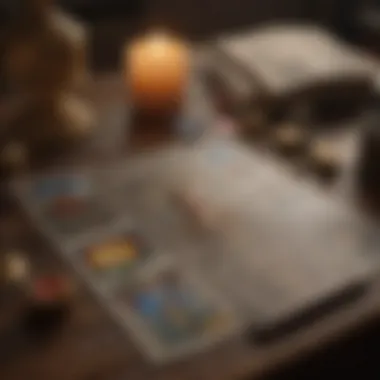
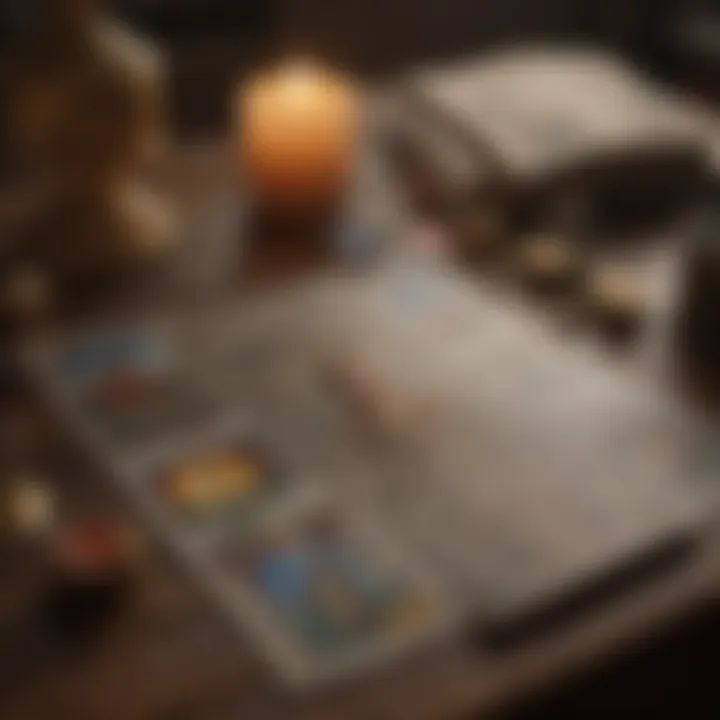
The practice of fortune telling resides at the intersection of belief, art, and ethics. Its implications extend beyond individual sessions, influencing public perceptions and societal norms. It's crucial to delve into the ethical considerations surrounding fortune telling to foster a responsible practice that enhances its relevance in modern astrology.
Responsibility of Practitioners
Fortune tellers hold a significant role in guiding individuals who seek insights about their lives. This responsibility entails being honest and transparent about what their practices can provide. Many practitioners claim to offer foresight into personal issues; however, this comes with the duty of not overstating their capabilities. It is important that they clearly communicate the nature of their readings.
Some aspects of responsibility include:
- Clear Communication: Practitioners should explain the process and possible outcomes of any reading. Misleading clients can lead to significant disappointments or harmful decisions.
- Emotional Impact: Sensitive topics like grief or unemployment require a compassionate approach. Fortune tellers should exercise care when discussing these subjects, being mindful of the client's emotional state.
- Confidentiality: Maintaining privacy is crucial. Sensitive information shared in a reading must be treated with the utmost discretion.
The ethical practice benefits both the practitioner and the client, as it fosters trust and encourages a positive experience. When clients feel respected and understood, they are more likely to engage with the process fully.
Consumer Awareness
Consumer awareness is also of paramount importance in the realm of fortune telling. Clients should approach these practices with an informed perspective. Understanding what to expect can lead to a more beneficial experience and reduce the likelihood of exploitation. Here are some points for consumers to consider:
- Research Practitioners: Knowing the background and reviews of a fortune teller can provide insights into their credibility. Seeking testimonials and recommendations can serve as a foundation for making an informed decision.
- Understand Limitations: Fortune telling should be perceived as a guide rather than a definitive answer. Clients must recognize that future predictions are not certainties. A reading may open pathways for decision-making but does not eliminate personal agency.
- Recognize Red Flags: Be alert to practitioners who make unrealistic promises or pressure for additional sessions. These behaviors can indicate a less than ethical approach to fortune telling.
“An informed consumer is the best defense against unethical practices.”
In summary, both practitioners and consumers play a vital role in establishing an ethical framework for fortune telling. This balance not only enhances the practice itself but also contributes positively to the broader landscape of modern astrology.
Case Studies
Case studies are crucial in understanding the impact and implications of fortune telling in modern astrology. They offer real-world examples that showcase both the efficacy and challenges of this practice. By examining specific instances where fortune tellers provided insights or advice, we gain a more nuanced view of their role in personal decision-making and the broader astrological community.
Examining the narratives of individuals who have sought guidance from fortune tellers can reveal patterns of belief, effectiveness, and potential pitfalls. Additionally, these studies highlight the evolving nature of belief systems surrounding astrology and fortune telling in contemporary society.
Successful Predictions
Successful predictions made by fortune tellers can serve as powerful testimonials to the effectiveness of their craft. These accounts often resonate with clients, giving them confidence in the guidance they receive. For instance, a fortune teller predicting a client’s career change or relationship outcome can significantly impact the client's choices and self-perception.
Such predictions often lead to a ripple effect, influencing not only the individual's actions but also extending to their family and social circle. Positive experiences can strengthen the allure of fortune telling, drawing in new clients eager for similar outcomes. It also cultivates a belief in astrology as a credible tool for personal insight.
In sum, successful predictions for fortune tellers validate their role in modern astrology and enhance their credibility. These narratives serve to encourage both skeptical and ardent believers to engage further with astrological practices.
Misinterpretations and Lessons Learned
While many experiences with fortune tellers are fulfilling, there are instances of misinterpretation that can lead to misunderstandings. When fortune tellers inaccurately interpret signs or predictions, clients may experience confusion or disappointment. This can lead to skepticism about the practice overall. Misinterpretations may arise from a variety of factors, including vague phrasing or ambiguous symbols in tarot readings, for example.
Clients might misinterpret the guidance given, leading to actions based on false premises. Such occurrences emphasize the importance of clear communication between fortune tellers and their clients. It is crucial for practitioners to frame their insights responsibly to avoid misleading clients in significant matters of their lives.
The lessons learned from misinterpretations can bolster consumer awareness. They highlight the significance of critical thinking when approaching fortune telling. Encouraging clients to engage with the information they receive thoughtfully can promote a healthier relationship with astrology and fortune telling.
Epilogue
The conclusion of this article emphasizes the multifaceted role of fortune tellers in the context of modern astrology. It highlights important elements such as the ongoing relevance of these practices, the evolving perceptions within society, and the significant insights that individuals can gain from engaging with them.
Future of Fortune Telling
Looking ahead, the future of fortune telling appears intertwined with advancing technology and shifting cultural attitudes. As more individuals seek guidance in a complex world, fortune tellers may find increased interest from a younger, tech-savvy demographic. Mobile apps and online platforms may further democratize access to readings, making these services more readily available.
In addition, traditional practices may merge with contemporary interpretations, leading to new methodologies in fortune telling. As awareness grows about mental health and self-care, the role of fortune tellers could pivot to focus more on personal growth and well-being. This change may open doors for innovative approaches in readings, adapting to the needs of today's society.
Final Thoughts on Personal Insight
Engaging with fortune tellers can serve as a catalyst for profound personal insight. These practitioners often help individuals navigate life's uncertainties, providing clarity through astrological interpretations. They can aid not just in decision-making but also in self-discovery.
Ultimately, the interaction with a fortune teller can be a pathway to understanding one's own motivations and desires. As modern life becomes increasingly complex, such insights can prove invaluable. Therefore, the fusion of tradition with innovation in fortune telling promises not just to retain its importance but could also expand its impact in the astrological landscape.
"The role of fortune tellers is not merely about predictions; it's also about understanding oneself in a clearer light, fostering personal growth"







